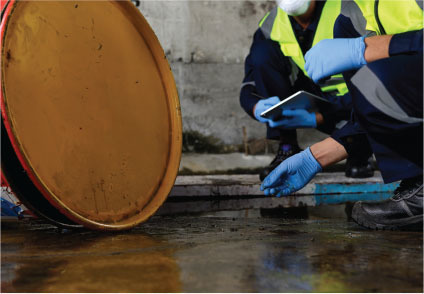March 2014
ON ETHICS: YOU BE THE JUDGE
Tenure Troubles?
Is favoritism seeping into a College of Engineering’s tenure and promotion process?
 The Situation
The Situation
The promotion and tenure (P&T) review process at a university typically involves a series of steps, each occurring at a higher level in the university hierarchy than the last. The process begins with the candidate preparing a draft dossier. The dossier is reviewed and edited by the candidate’s department head, which can vary from guidance through numerous drafts to simple copyediting.
The final dossier is submitted for review by peers outside the university, including senior faculty members and administrators from other institutions. Their letters are added to the dossier, after which the department head submits the dossier to the department P&T committee for an evaluation that is added to the dossier. Thereafter, the department head writes a letter of evaluation that is added to the dossier. At each step, previous letters are considered by the reviewer(s).
Next, the dossier is forwarded to the College of Engineering P&T committee for “independent evaluation.” Members of the departmental P&T committees and department heads can and do serve on the college and university P&T committees, with exceptions. University guidelines require department heads and department committee members to recuse themselves from decisions and recommendations on candidates for whom they have submitted signed letters of evaluation. The college P&T committee adds a letter of evaluation and recommendation to the dossier before it is forwarded to the dean of engineering.
There are instances where department heads and department committee members serving on the P&T committee participate in discussions and review of promotion and review candidates for whom they have previously submitted a letter of evaluation.
The dean of engineering prepares a letter of evaluation and forwards the dossier to the university-wide P&T committee and then to the central university administration for final action by the appropriate administrator.
What Do You Think?
Is it ethical for a department head and a department committee member to write a letter of evaluation of a candidate for promotion and tenure, and then participate in the discussion and review of candidates by the College of Engineering P&T committee?
What the Board of Ethical Review Said
Engineering faculty and administrators face important and substantive ethical issues in their professional practice. While some of the ethical issues are similar to those faced by engineers in industry, construction, private practice, and government, other ethical issues are quite different.
It is the Board’s belief that there appears to be an inherent conflict of interest that exists between the department head and the committee member’s role in supporting candidates for promotion and tenure and their subsequent role in shaping the outcome of the P&T decision-making process.
While it appears that there are procedural “checks and balances” that may mitigate the likelihood of bias or prejudice during the process, because of the active participation by the department head and committee members during the earlier stages of the process, there is a greater likelihood that those parties will be less objective, open-minded, or neutral than is required under a promotion and tenure determination process. While the process described under the facts is generally an open one and there appears to be an atmosphere of full disclosure, there is a danger that the process could be tainted by favoritism or disapproval during the discussion and informal reviews.
For that reason, it is the Board’s view that it would not be appropriate for a department head or department committee member, who wrote a letter evaluating a candidate, to participate in the discussion and review of department candidates for the College of Engineering P&T committee.
Conclusion
Under the circumstances described in the facts section, it would be unethical for a department head and department P&T committee member who wrote a letter evaluating a candidate to participate in the discussion of candidates by the College of Engineering P&T committee. The signatories of letters of evaluation should follow the university’s P&T process guidelines and recuse themselves from discussions.
NSPE Code References
Section I.5: Engineers, in the fulfillment of their professional duties, shall: Avoid deceptive acts.
Section II.4.a: Engineers shall disclose all known or potential conflicts of interest that could influence or appear to influence their judgment or the quality of their services.
Section III.1: Engineers shall be guided in all their relations by the highest standards of honesty and integrity.
Section III.5: Engineers shall not be influenced in their professional duties by conflicting interests.
For more information, see BER Case 10-12.


 Volunteering at NSPE is a great opportunity to grow your professional network and connect with other leaders in the field.
Volunteering at NSPE is a great opportunity to grow your professional network and connect with other leaders in the field. The National Society of Professional Engineers (NSPE) encourages you to explore the resources to cast your vote on election day:
The National Society of Professional Engineers (NSPE) encourages you to explore the resources to cast your vote on election day:


